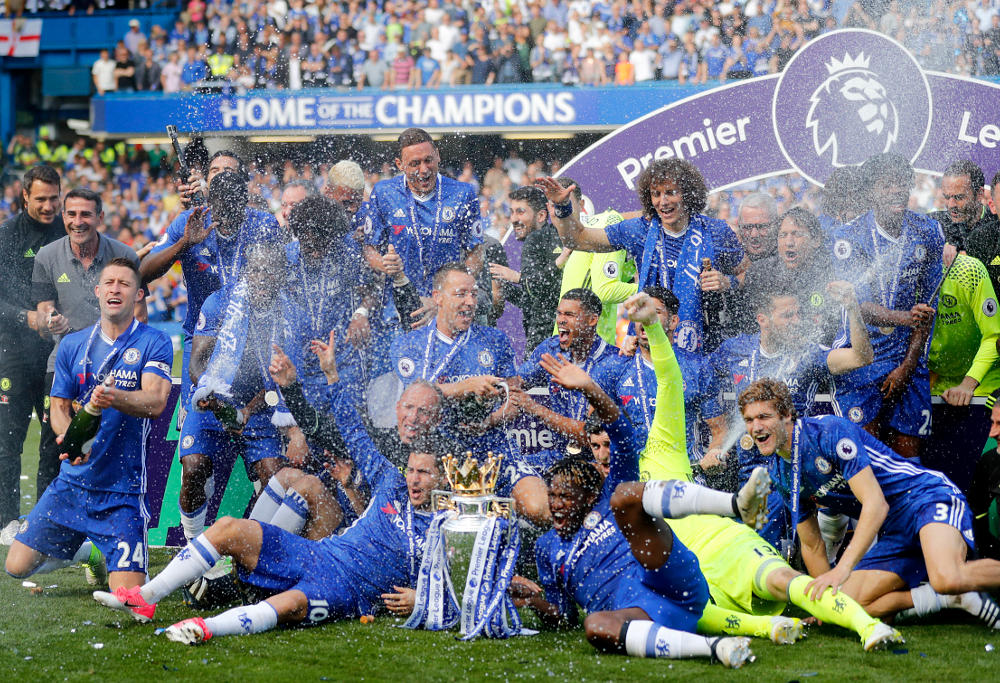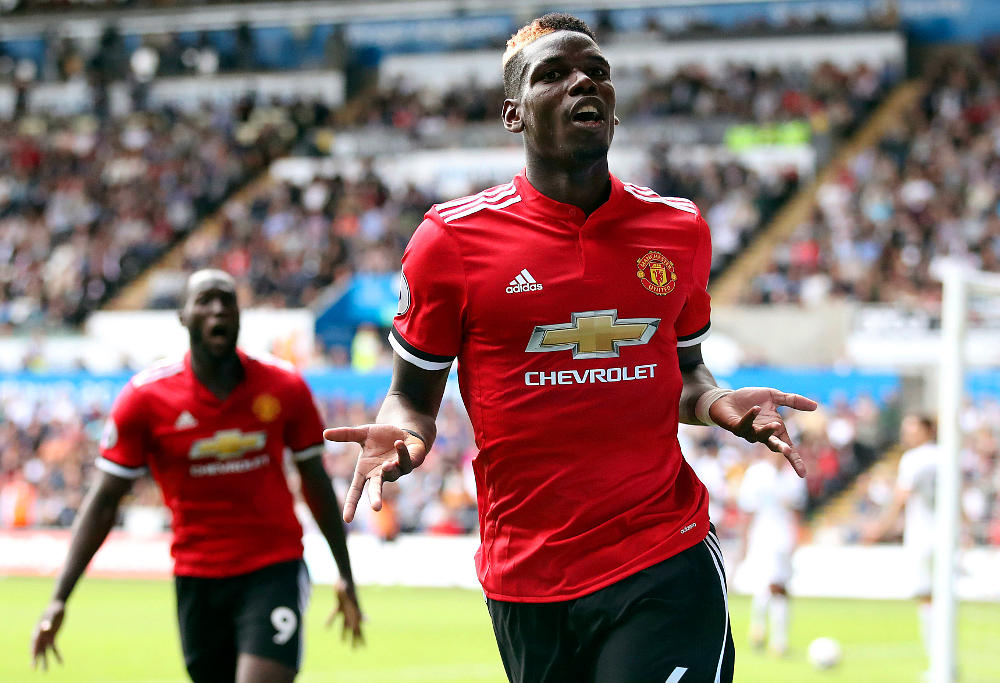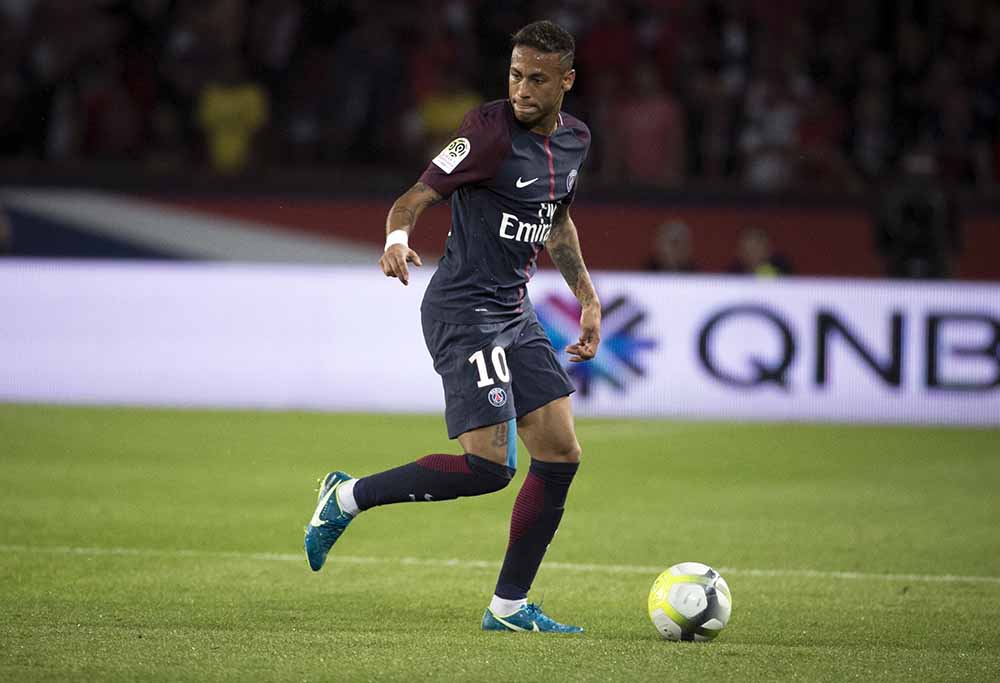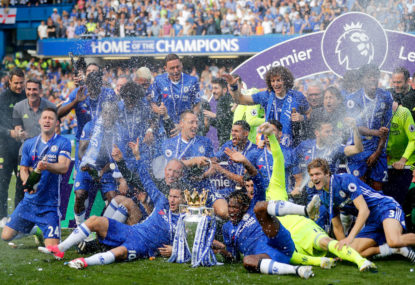This transfer window will go down as the biggest yet in recent memory not only because of Neymar’s record £200 million ($340 million) deal to PSG but also because Manchester City, Manchester United, Chelsea and even Everton to some extent have spent record numbers in trying to achieve their goals.
No doubt this will lead many to believe that money is ruining football and that it is only a matter of time before clubs continuously ‘buy’ the league year after. However, I would argue that no club has actually bought the league. Sure, some clubs are richer than others – this fact is never going to change – but it ultimately does not result in short or long-term success.
A common argument for money ruining the league can be seen with the two Manchester sides.
Manchester City is often accused of throwing money at the league in order to secure a title, and while this is somewhat true with Manuel Pellegrini’s final season, in which he spent £169 million on record singings for Raheem Sterling, Nicolas Otamendi and Kevin De Bruyne, City only barely scrapped Champions League football going through on goal difference alone.
In Pep Guardiola’s first season he spent a total of £212 million on players with a certain expected level of class, such as John Stones and Gabriel Jesus. However, despite a strong start, Pep’s men often struggled at the back, finishing only marginally better in third place.
With the amount of money spent over two years City fans and bookmakers alike would suggest that City were shoe-ins for the title, and yet this was not the case.

(Image: AP Photo/Frank Augstein)
By no means am I suggesting football clubs stop spending full stop – Sterling currently is a success under Guardiola, picking up the player of the month award for August and his recent performances – but what I am suggesting is the following.
City – and by extension other cash-filled clubs – cannot hope to create success in the short term through spending alone. Sterling’s recent performances under City suggest that there is at least an adjustment period of typically a year for new signings to settle in and show their worth.
Therefore, teams cannot buy the league as they have to typically sacrifice a season rebuilding after a summer blow-out, giving other clubs a chance to challenge while the ‘big clubs’ are licking their wounds to recover. Next season? Perhaps a different story should a club not resort to panicking about a lack of short-term success and spending heaps in the pursuit of short-term gains.
The biggest problem in the Premier League is not the ridiculous amounts of money that clubs spend; rather, it is the short-term mindset that plagues board-room discussions and interferes with the mentality of those in charge.
Case in point: Manchester United since the legendary Sir Alex have spent £500 million on transfers in pursuit of former glory. Casting aside David Moyes, I wish to focus purely on Louis Van Gaal’s two-year stint with the club.
In his first season Van Gaal smashed signing records with Angel Di Maria (£59.7 million) as well as generated hype through the loan deal of Radamel Falcao. When these players failed to adjust in the short term of one season they were displaced and moved on, with the manager spending further on Memphis Depay, Bastian Schweinsteiger and Morgan Schneiderlin.
As you can see, when these players do not work out in the short term they are sold and quickly replaced, which contributes to stupid amounts of money being spent. Players are not given the time that we typically expect for new transfers to adjust to the club due to the risky financial investment in them. This creates a never-ending loop of spending big to secure talent, being upset when said talent doesn’t work immediately and then selling to make way for more rapid spending.

(Image: Nick Potts/ PA via AP)
However, again I want to stress that this isn’t about not spending at all, because it is risky. When spending this money clubs shouldn’t expect results overnight. The absurd amount of money – at the time, at least – spent on Anthony Martial at United (€50 million) is now considered to be a success, with the star player contributing to United’s recent resurgence up front.
Even Paul Pogba, one of the most expensive players in the world, was considered to be underwhelming for most of his debut season. In the short term his season was also considered to be underwhelming; however, after the adjustment period he is proving to be an effective midfielder, excelling particularly in United’s demolition of Swansea.
Hence it is not feasible to suggest that teams are ‘buying the league’, as this restructure often takes time – time that other clubs that do not have insane amounts of money can use to their advantage. In the 2015-16 season, when everyone underperformed in the league, we saw typically fifth or sixth-placed Tottenham Hotspur push for third and taking advantage of their success to score second last season.
I fully believe that because of this restructuring process clubs that do not spend as much should be able to snowball while the larger clubs are spending heaps in order to recover from disappointing seasons.
Yes, I am aware of Chelsea’s £120 million expenditure to win the title, and I understand that this ends up shooting my entire argument in the foot but hear me out – this was a victory that, first, is very unlikely to happen and, second, was based on the talent of the manager rather than the money.
With the exception of Antonio Conte and the anomaly that was Claudio Raneri, it is very rare to see managers win the title in their first season in charge.
Looking at past winners of the EPL, we see Chelsea, United and City for the past 14 years. I ask: how much of this is based on money?

(Image: AP Photo/Kamil Zihnioglu)
Manchester United were blessed with one of the greatest managers of all time in Sir Alex Ferguson. Chelsea were equipped with equally capable managers in Carlo Ancelotti, Jose Mourinho and more recently Antonio Conte. Manchester City had proven managers in Roberto Mancini and Manuel Pellegrini.
All of these managers had well-established reputations and technical prowess before coming over to their respective clubs. Yes, I understand that the allure of money in some cases might convince managers to leave their previous clubs in order to win the league in England, but as we have seen with managers like Louis Van Gaal, money alone is not enough to win the league.
However, capable managers take time to develop, and in this modern era of football that pursues instant success, coaches end up stressing themselves out, buying proven players for large amounts of money and ultimately dooming themselves to a cycle of spending with limited results.
In summary, money alone does make it easier to win the league. I’ll admit it, but it is by no means critical. I understand that this is not the easiest side to argue and that this contention can be easily rebutted, but I do believe that money in the league is not something we should be scared of.
We should not be crying heresy whenever a club blows their budget, because at the end of the day, once the money is spent, the expectations become higher, the timeline for success shorter and the skills of those in charge become tested.
Do I believe that money can buy the title? No. The richest clubs in the EPL are nowhere near dominating the league – even locally Melbourne City still haven’t won a final despite having the richest squad. In other leagues? Perhaps, but even then there will always be anomalies breaking through the stronghold of the rich.
It is time to look at things with a critical eye, and money alone does not win the title.
































































































